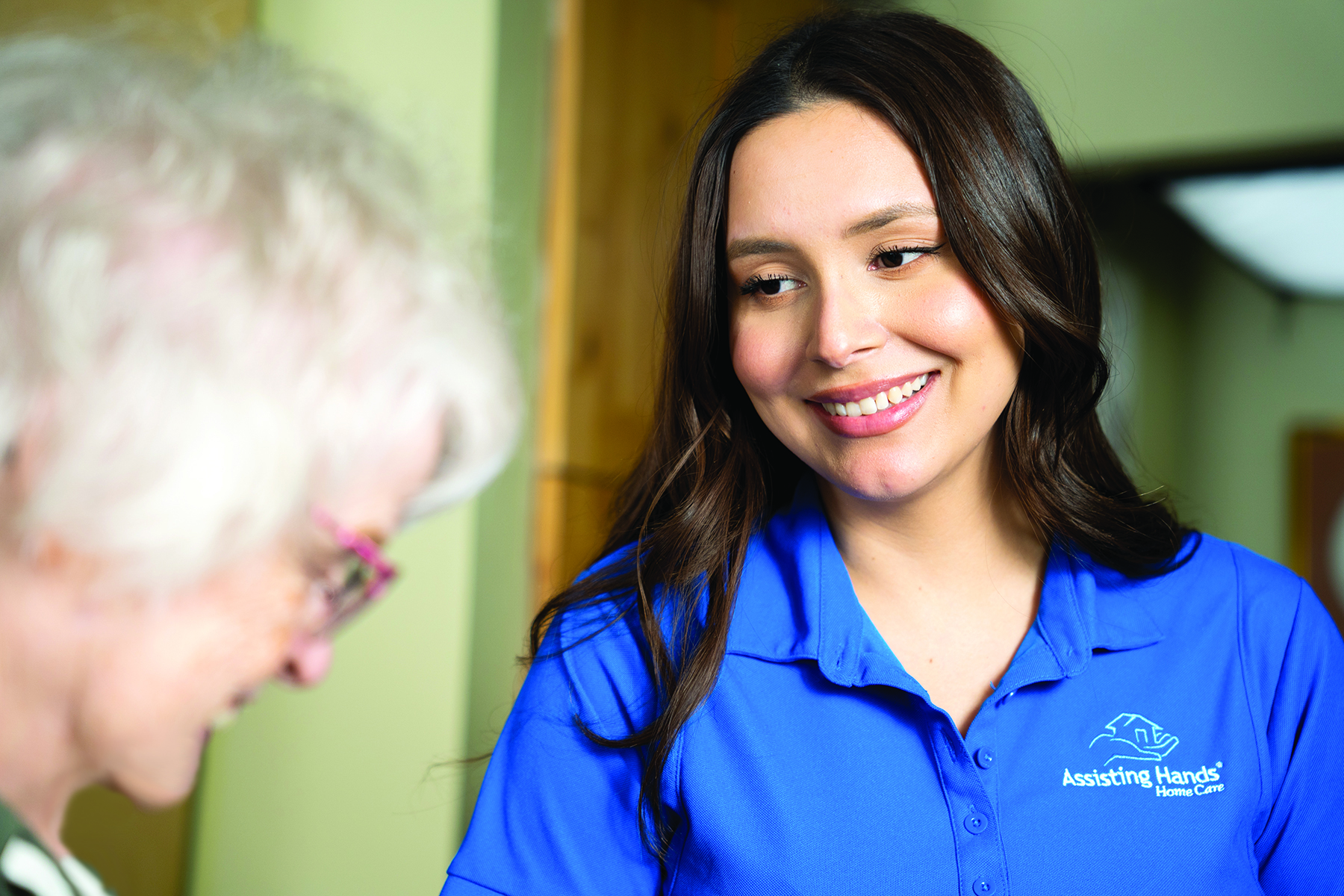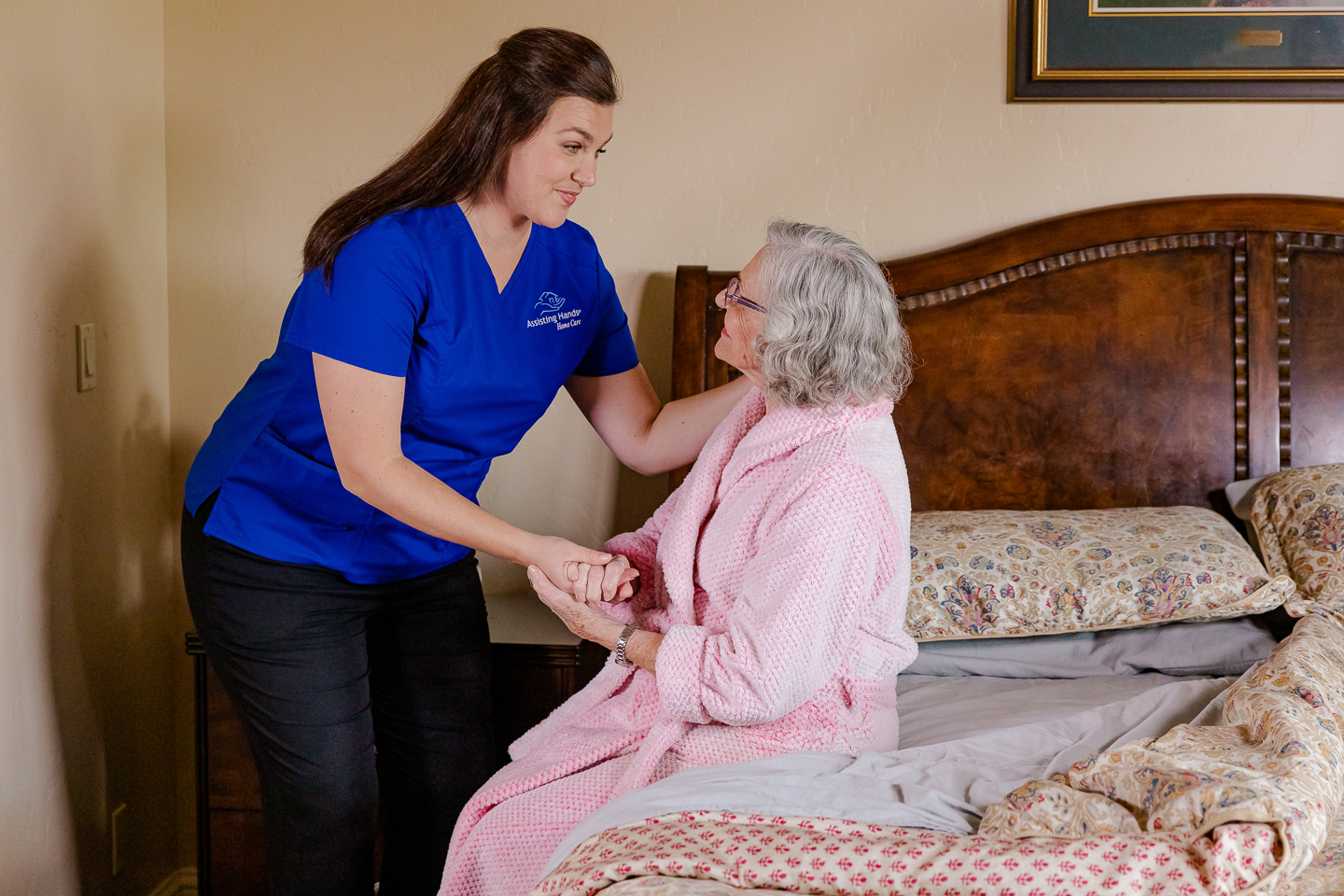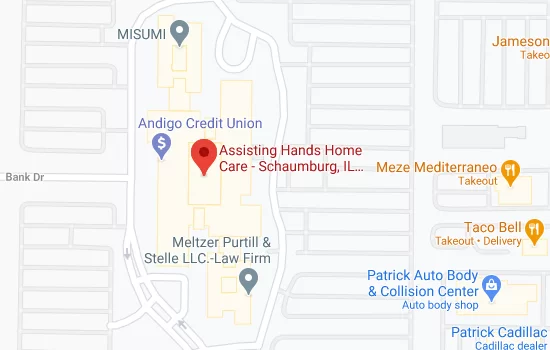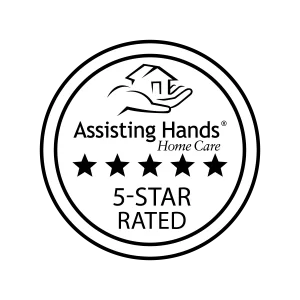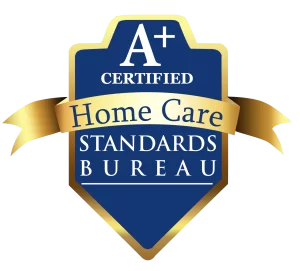Caring for a loved one who lives at least an hour away is considered long distance caregiving. Providing long distance care is accessible to anyone, no matter their age, income level or employment status. Successful long-distance care can be accomplished with the following helpful tips.
How Long Distance Care Can Help

Despite seeming like an insurmountable challenge, a long-distance caregiver can accomplish a lot from afar. A long-distance caregiver, for instance, might help with bill paying and overall management of finances. Arranging for in-home care and assisting with insurance benefits are exceptionally useful, too.
A long-distance caregiver also may keep friends and family updated on the care recipient’s health. The individual may prepare an emergency plan in the event of a crisis. The caregiver can also research medicines and the care recipient’s health issues from several miles away.
Many long-distance caregivers are unaware of how to start the caregiving process. Caregiving skills can be learned from local chapters of the American Red Cross, some nonprofit organizations that focus on senior care as well as via training opportunities with Medicare or Medicaid.
New long-distance caregivers may start the process by asking the primary caregiver about ways to help. Friends who are caregivers are good resources to seek out for advice about the role. Plus, visiting the care recipient often allows the caregiver to observe where help is needed.
1. Assess Medical Condition
Learning as much as possible about the loved one’s condition is extremely beneficial. Understanding ailments and treatments helps the long-distance caregiver prevent a health crisis, assist with managing healthcare and better discuss the senior’s condition and treatment options with the doctor.
In order to openly discuss and receive information about the senior’s medical condition, written permission must be obtained, per HIPAA Privacy Rules. Organize all medical, financial and contact information online or in a physical folder to share with other caregivers.
2. Evaluate Strengths
Long-distance caregivers may excel at certain tasks, like organization. Individuals who are able to pull together a team can put their skills to use. The long-distance caregiver could coordinate the senior’s medical care, arrange for meal delivery services or organize documents.
Arranging for local help allows the senior to maintain the home. A long-distance caregiver with organizational strengths might have a nearby family member drive the elderly person to doctor’s appointments. Remember, the senior is a member of the team, so always consult the senior.
Staying organized requires a reliable list of contacts. Keep an updated list of people and services who are of vital importance to the loved one’s care. This list should include help at all levels, from the senior’s medical doctors to professional in-home caregivers to the meal delivery service.
3. Communicate Often
 Although living in a faraway town or state makes in-person visits difficult, staying in contact with the care recipient is readily accessible with technology. Video and phone calls and emails allow for regular communication with the loved one as well as the senior’s medical team.
Although living in a faraway town or state makes in-person visits difficult, staying in contact with the care recipient is readily accessible with technology. Video and phone calls and emails allow for regular communication with the loved one as well as the senior’s medical team.
Additional ways to monitor a loved one’s condition from afar are to seek the ongoing help of individuals nearby, such as family members, friends or even the senior’s social worker. A close network of people like these helps a long-distance caregiver make informed decisions about care.
Caring for a senior from afar is also doable with simple home modifications. Video monitors may be installed in the senor’s home. Smart pill dispensers, sensor mats and bed alarms are new technologies that notify caregivers about the senior’s activities.
A medication dispenser with remote monitoring notifies the caregiver if a dose is missed. Wireless sensor mats placed beside the bed send signals to the caregiver when the senior places pressure on the mat, a useful feature for knowing whether the loved one has risen from bed and returned.
4. Create an Emergency Plan
A health crisis could immediately send the family caregiver on a plane to the loved one’s home. Prepare for the possible event by establishing a support system to help with the kids or a job while away. Keep a travel bag ready with the essentials to help with last-minute packing.
5. Pay a Visit

Time spent with a loved one should be enjoyable. Pursue activities the senior will find relaxing, such as a game of cards, arts and crafts, watching a favorite movie or simply delighting in an old-fashioned breakfast together. Leisure moments like these build fond memories for all involved.
Prepare for an in-person visit by arriving with a list of concerns and topics for discussion. Observe the home environment, looking for areas with a lack of upkeep. If the lawn is overgrown, the laundry is piled high or the faucet drips, arrange for reliable home services.
Also schedule in-person interviews with the senior’s service providers and discuss concerns. Be wary if the senior mentions individuals who have been helpful but who have not been personally interviewed. Look for signs of abuse, such as suspicious bank account withdrawals or unexplained injuries.
Local Home Care Services
While at a loved one’s home, you may notice household chores are being neglected. Or, the senior may show signs of needing help with personal care. When observing extra support is needed, turn to Assisting Hands Home Care, a home care agency dedicated to assisting the elder population.
Professional caregivers from Assisting Hands Home Care are experienced in delivering all aspects of non-medical home care. We take care of light household chores, shop for groceries and provide transportation to doctor’s appointments, senior exercise classes, therapy and any errands.
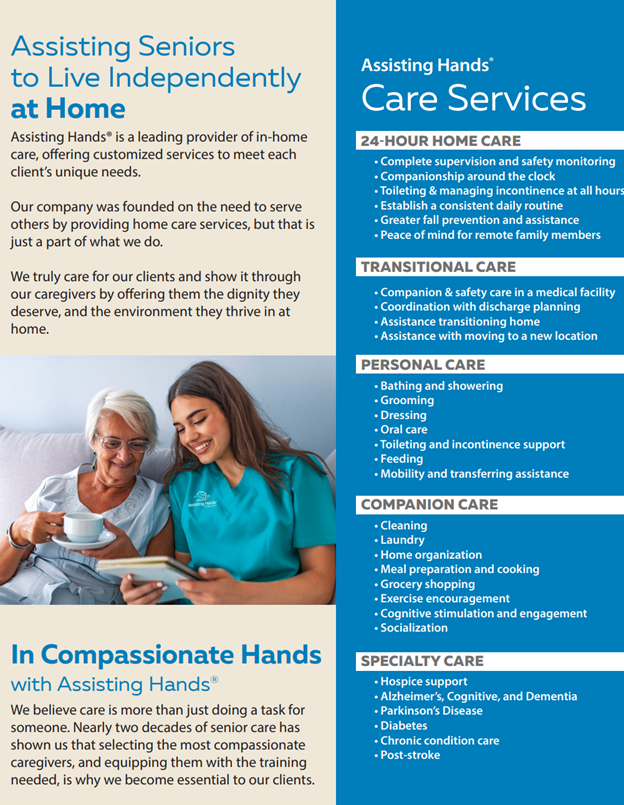
Assisting Hands Home Care professionals also provide discreet help with the activities of daily living. We assist seniors with daily hygiene tasks, like bathing, grooming, dressing and toileting. Our services include dementia care, fall prevention, respite care and 24-hour care.
With a team of licensed, bonded and insured caregivers, Assisting Hands Home Care is an elder care agency that residents in the surrounding communities of Schaumburg, IL, trust.
Free Consultation
When you live too far away to provide daily, direct help, contact us at (224) 258-0736 for the most reputable home care available. We offer free consultations in Schaumburg, IL and the surrounding areas.

Daniela has master’s degree in electronic engineering with a pedagogical specialty and master’s degree in marketing management.
After completing her schooling, Daniela worked at a hospital for 6 years as the Director of Business Marketing Development and Public Relations.
Starting Assisting Hands Home Care
Daniela spent more than 14 years as the Assistant Vice President of a national bank before becoming a co-owner of Assisting Hands Home Care of Schaumburg.
Her background in public relations and marketing along with her personal experience caring for her mother motivates Daniela to be passionate about helping families in the Schaumburg, IL area find exceptional caregiving services for their elderly loved ones.
Besides providing home care, Daniela enjoys giving back to the community in her free time, supporting various events at St. Peter Parish in Geneva, IL such as fundraising, school projects, charity events, and more. She also enjoys volunteering for the Humanitarian Service Project in Carol Stream, IL. This organization provides seniors with meals as well as food and supplies for children living in poverty.


